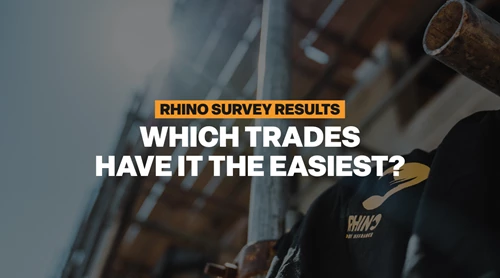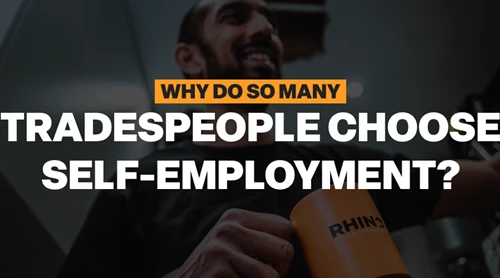
Which Trades Have It Easiest?
Rhino’s 2024 survey asked tradespeople a loaded question: what is the hardest trade? The answers could shock, or leave you unsurprised!
Low Traffic Neighbourhoods (LTNs) have become a prominent urban planning strategy in recent years, aimed at reducing traffic congestion and creating safer, more pedestrian-friendly environments.
While these initiatives are often lauded for their positive effects on the environment and community, there are concerns about how LTNs may affect small businesses operating within these areas. In this blog post, we'll explore what LTNs are, their potential impacts on small businesses, and strategies for adapting to this changing urban landscape.
Low Traffic Neighbourhoods, also known as "Mini-Hollands" or "Neighbourhood Streets," are designed to reduce the volume of through traffic in residential areas. They typically involve measures like road closures, restricted access, and the creation of pedestrian-friendly zones. The main goals of LTNs are to:
Impact on Small Businesses:
While LTNs offer several benefits for communities, small trade businesses in these areas may face both challenges and opportunities:
Low traffic neighbourhoods may limit vehicle access to certain streets or areas, potentially reducing the number of customers your business can reach by car/ van.
With LTN's in place, you may not be able to travel on certain roads and at specific times. This means journeys will take place on main roads, thus increasing your time to and from a job.
LTNs can encourage more people to use local businesses, so anyone offering services in these areas may potentially benefit more.
Small businesses like construction reliant on deliveries may face logistical challenges due to restricted access. This could result in longer delivery times and increased costs.
Limited parking spaces within LTNs may deter customers who rely on private vehicles, especially if they perceive parking to be difficult or expensive.
Low-traffic neighbourhoods in the UK impose the following restrictions on traffic:
Instead of punishing local drivers, these limits are meant to prevent vehicles from exploiting LTNs as a shortcut. It's worth exploring your work journeys and the jobs you are doing because certain LTNs are only used at specific times of the day.
Driving through an LTN without permission could result in a punishment of £130 (which would be lowered to £65 if you pay within 14 days).
To thrive in areas with Low Traffic Neighbourhoods, small businesses can adopt the following strategies:
Staying on top of any new rules (especially relating to LTN's) will keep you on the straight and narrow and avoid any unwanted fines.
Engage with neighbourhood associations and community events to form relationships with residents and raise awareness about your business and why customers in LTN's should choose you.
Work with local authorities to find creative solutions for parking when working on-site, such as shared parking spaces or designated areas.
Exploring new products or services that align with the changing needs and preferences of the community.
Stay attuned to evolving consumer preferences and adjust your business strategies accordingly.
Continuously assess the impact of LTNs on your business. Solicit feedback from customers and employees to make informed decisions.
Due to the additional funds allocated by the government in 2020, London is home to the bulk of LTNs. While Oxford and Bristol also have LTNs, the following areas have requested funds from the Department of Transport to establish their own LTNs:
LTN rollouts across the UK may resemble the ULEZ (Ultra Low Emission Zone) programme. In the UK, towns and cities, including Edinburgh, Portsmouth, Bradford, and Bath, have established clean air zones since the original ULEZ was initially implemented in London in 2019.
Although Low Traffic Neighbourhoods aim to create safer, healthier, and more sustainable communities, small trade businesses working in LTN areas may face initial challenges. While the Prime Minister, Rishi Sunak, has asked for a review into LTN's, we cannot be sure what the future holds for motorists. However, as with the ULEZ scheme, the debate will no doubt carry on, so it's just worth staying ahead of the latest news in your area of work.
To stay safe and keep your business afloat, the team at Rhino Trade Insurance is here to protect your trade business in trying times. Our experts have years of experience in the industry and have created customised policies for specific trade businesses across the country. If you need your public liability, tool protection, income cover or legal expenses sorting, give our team a call of get an affordable quote in less than a minute today.
Rhino’s 2024 survey asked tradespeople a loaded question: what is the hardest trade? The answers could shock, or leave you unsurprised!
Self-employment is booming in the UK, especially among tradespeople who value freedom, flexibility, and higher earning potential. Backed by our own survey data from over 500 tradespeople, this article dives into why so many in the industry choose to go it alone, despite the risks.
Rhino’s 2024 survey found nearly half of tradespeople would run out of money within 3 months if they couldn’t work. Learn how insurance can help you stay afloat.
Tell us your trade and get a tailored insurance quote for your business in seconds
Our team of experts are available to talk to Mon-Fri 08.30-17.30 and Sat 10.00-14.00

